The latest Merry Mariner adventure, Mamma Troubles the Trolls, is finally finished! It's the shortest short story yet, taking place in the fantastic canal-city of Poort Van Winkle, and features an amphibious motor-car, breadclogs (freshly baked footwear) and, of course, a troll.
Read it for free on the site right now!
Read it for free on the site right now!
However . . . are you tired of reading these things off your various screens and computing devices? Wouldn't you prefer the granular, tactile sensation of real ink printed on real paper held in your real hands?
The Merry Mariner stories feel they should be read on print, and printed books have always been the endgame for me concerning the final, full-length stories which I'm working up to. But for these short tales I always just assumed I'd publish them online for free and that would be that. However, I realized it would be nice to have a printed book of the stories done so far, if for no other reason than as a prototype. A PDF and online site doesn't really get across what I'm going for. A real, printed book? That's something else.
So I made this:
The Merry Mariner stories feel they should be read on print, and printed books have always been the endgame for me concerning the final, full-length stories which I'm working up to. But for these short tales I always just assumed I'd publish them online for free and that would be that. However, I realized it would be nice to have a printed book of the stories done so far, if for no other reason than as a prototype. A PDF and online site doesn't really get across what I'm going for. A real, printed book? That's something else.
So I made this:
Using Amazon's CreateSpace service, I designed and self-published the first three stories. They're not available on Amazon, and I'm not selling them for a profit. As I said, they're prototypes. I intend to give them to friends and family, potential agents or publishers, and most importantly, to kids! I need their feedback, and they need to read an actual book, not a PDF off an iPad. It's just not the same otherwise.
If you're reading this and thinking, "gee, I'd like to get my hands on that pretty book," then by all means order yourself up a copy right here:
If you're reading this and thinking, "gee, I'd like to get my hands on that pretty book," then by all means order yourself up a copy right here:
I put the price a low as it would possibly go, $3, which means I don't make anything off the books - but if you know some kids that might enjoy stories of adventure and fantasy aboard a windmill-ship, it's worth it to me. Hook 'em early, that's what I say!
Now, if you looked closely at the cover above, or at the site's main page, or at the banner above every page on this site, you might have noticed that Verona Wicklow is no longer the pasty-white-skinned girl she used to be.
In fact, the whole family looks a lot less caucasian and a lot more multi-culti:
Basically, here's what happened.
I was trying to think of ways in which the Merry Mariner stories, for promotional and marketing purposes, were different than other stories of the same genre. In other words, why would someone pick the Merry Mariner off the bookshelf as opposed to any other book? Adventure-fantasy? Not particularly unique. A traveling family? Closer, but again, not particularly "different." In fact, the whole adventure-fantasy-serial-starring-world-traveling-family thing has already been done with the Wild Thornberrys!
What if I changed something drastic? It was worth a thought experiment. I started trying to think of ways to upend the current formula. Which fundamental aspects of the stories were I willing to change, or at least look at differently? The windmill-ship? That stays. The title? Could be catchier. Do they have to be white?
Hm.
This, honestly, had always tugged at the back of my mind. Why does the family Wicklow have to be all-white? Originally, it was because Verona and her four siblings were based (very) loosely on my own mother and her four brothers, who grew up in County Wicklow, Ireland. The Wicklow family then naturally hail from the Seven Seas' Ireland-equivalent, the Foglands. It just seemed natural.
But do they have to be white?
This got me thinking more about something that's bothered me for a long time. White is the default, especially in kids' stories. Tintin, Captain Haddock and their compatriots are all white, except again for a friend here or there that is either untrustworthy or must constantly be rescued. Nancy Drew, the Hardy Boys, the Famous Five - all white. Sure, these are all old-fashioned examples, but even the main cast of Harry Potter are all pure pasty British white, save for a few side characters in the periphery. The kids in the Magic Treehouse, even the Wild Thornberrys - all white, unless specifically written otherwise. White is the default, and that kind of sucks.
Why should the family Wicklow be white? Is it only whites that get to travel the world in big, fanciful ships? Is it only whites that get to explore an alternate-fantasy 1900s-era globe, visiting new and strange places and people? The family Wicklow didn't have to be all-white. There were a number of good reasons I could think of as to why I should change their ethnicity, but the main one was that maybe, if this series became successful, I could contribute to the next generation of kids caring just a tiny bit less about the color of someone's skin.
And once I had that thought, I couldn't very well go back, could I?
Going back to an all-white Wicklow family means making the conscious decision to paint them white, and were there any good reasons to do that? There were lots of terrible reasons, such as avoiding the label of being overly politically correct (who cares? That's not what this is about), or that most if not all of the great 19th-century explorers were white (yes, and windmill-ships are also unrealistic), or that the Wicklows had already spent so much time in my head as a white family that it would change the way I thought about them (good! Isn't the point to prove that it doesn't matter?).
I decided that changing it was for the best. As a friend of mine pointed out, most people would probably either be happy about it or not care at all, and those that did care about it enough to refuse to do business with me were obviously not the kind of people I wanted hanging around anyway.
So you'll notice I've gone through and changed their skin color on the site and in the illustrations for all the stories. I decided to have the kids be half-half. Fritz and Felix stayed white for two reasons - first, kids in mixed-ethnic families often have a dramatic variation in skin tones, so they don't all need to be "middle brown." Second, I'm toying with the idea that the twins were adopted (specifically, dropped out of an airplane during a hurricane. But that's another story). Of the parents, I decided it should be Pappa who is black (or dark brown - it's not really important whether he's "African" or "Indian" or "Caribbean." He's still from the Foglands), not just because if Mamma were black she'd be your classic borderline-racist Mammy stereotype, but because Pappa was already such a distinct character in my head - bumbling, absent-minded professor type - that I didn't risk changing the way he talked or acted based on some latent, subconscious prejudice I might be carrying around in the back of my head. That would defy the whole point. Their personalities should stay exactly the same, I love the family Wicklow just the way they are.
I have to admit, this is tough to talk about. I feel like I'm either risking sounding too precious and politically correct, affirmative-actioning my characters just so they'll be more popular, or that by speaking openly about racial prejudice I'm somehow opening myself up to accusations of racism or reverse-racism or some other nonsense.
In the end, I didn't solve the problem I set out to solve. I don't think having a multi-ethnic family makes the Merry Mariner stories any more marketable, and anyway that's a pretty weak place to market from if my reason for doing it is to demonstrate that skin color isn't important. So a lot as changed, and yet nothing really has changed. And I guess that's the point.
I was trying to think of ways in which the Merry Mariner stories, for promotional and marketing purposes, were different than other stories of the same genre. In other words, why would someone pick the Merry Mariner off the bookshelf as opposed to any other book? Adventure-fantasy? Not particularly unique. A traveling family? Closer, but again, not particularly "different." In fact, the whole adventure-fantasy-serial-starring-world-traveling-family thing has already been done with the Wild Thornberrys!
What if I changed something drastic? It was worth a thought experiment. I started trying to think of ways to upend the current formula. Which fundamental aspects of the stories were I willing to change, or at least look at differently? The windmill-ship? That stays. The title? Could be catchier. Do they have to be white?
Hm.
This, honestly, had always tugged at the back of my mind. Why does the family Wicklow have to be all-white? Originally, it was because Verona and her four siblings were based (very) loosely on my own mother and her four brothers, who grew up in County Wicklow, Ireland. The Wicklow family then naturally hail from the Seven Seas' Ireland-equivalent, the Foglands. It just seemed natural.
But do they have to be white?
This got me thinking more about something that's bothered me for a long time. White is the default, especially in kids' stories. Tintin, Captain Haddock and their compatriots are all white, except again for a friend here or there that is either untrustworthy or must constantly be rescued. Nancy Drew, the Hardy Boys, the Famous Five - all white. Sure, these are all old-fashioned examples, but even the main cast of Harry Potter are all pure pasty British white, save for a few side characters in the periphery. The kids in the Magic Treehouse, even the Wild Thornberrys - all white, unless specifically written otherwise. White is the default, and that kind of sucks.
Why should the family Wicklow be white? Is it only whites that get to travel the world in big, fanciful ships? Is it only whites that get to explore an alternate-fantasy 1900s-era globe, visiting new and strange places and people? The family Wicklow didn't have to be all-white. There were a number of good reasons I could think of as to why I should change their ethnicity, but the main one was that maybe, if this series became successful, I could contribute to the next generation of kids caring just a tiny bit less about the color of someone's skin.
And once I had that thought, I couldn't very well go back, could I?
Going back to an all-white Wicklow family means making the conscious decision to paint them white, and were there any good reasons to do that? There were lots of terrible reasons, such as avoiding the label of being overly politically correct (who cares? That's not what this is about), or that most if not all of the great 19th-century explorers were white (yes, and windmill-ships are also unrealistic), or that the Wicklows had already spent so much time in my head as a white family that it would change the way I thought about them (good! Isn't the point to prove that it doesn't matter?).
I decided that changing it was for the best. As a friend of mine pointed out, most people would probably either be happy about it or not care at all, and those that did care about it enough to refuse to do business with me were obviously not the kind of people I wanted hanging around anyway.
So you'll notice I've gone through and changed their skin color on the site and in the illustrations for all the stories. I decided to have the kids be half-half. Fritz and Felix stayed white for two reasons - first, kids in mixed-ethnic families often have a dramatic variation in skin tones, so they don't all need to be "middle brown." Second, I'm toying with the idea that the twins were adopted (specifically, dropped out of an airplane during a hurricane. But that's another story). Of the parents, I decided it should be Pappa who is black (or dark brown - it's not really important whether he's "African" or "Indian" or "Caribbean." He's still from the Foglands), not just because if Mamma were black she'd be your classic borderline-racist Mammy stereotype, but because Pappa was already such a distinct character in my head - bumbling, absent-minded professor type - that I didn't risk changing the way he talked or acted based on some latent, subconscious prejudice I might be carrying around in the back of my head. That would defy the whole point. Their personalities should stay exactly the same, I love the family Wicklow just the way they are.
I have to admit, this is tough to talk about. I feel like I'm either risking sounding too precious and politically correct, affirmative-actioning my characters just so they'll be more popular, or that by speaking openly about racial prejudice I'm somehow opening myself up to accusations of racism or reverse-racism or some other nonsense.
In the end, I didn't solve the problem I set out to solve. I don't think having a multi-ethnic family makes the Merry Mariner stories any more marketable, and anyway that's a pretty weak place to market from if my reason for doing it is to demonstrate that skin color isn't important. So a lot as changed, and yet nothing really has changed. And I guess that's the point.
Don't forget to read Mamma Troubles the Trolls! It's got the best illustrations yet. I'm really proud of it.
Until next time,
M. Ray
Until next time,
M. Ray
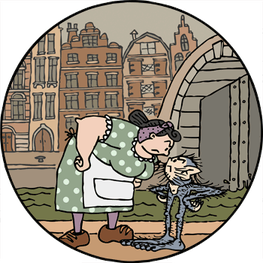
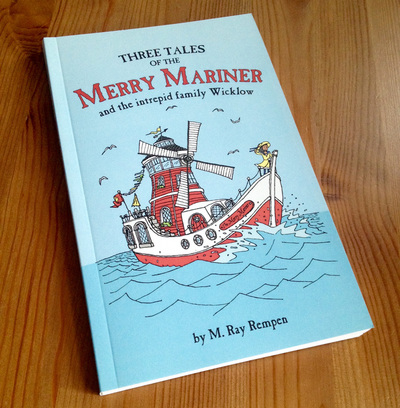
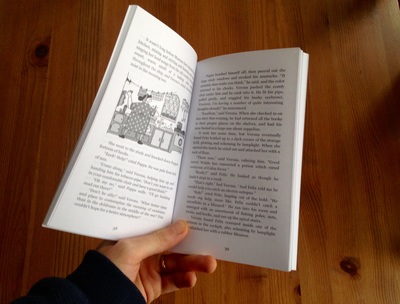
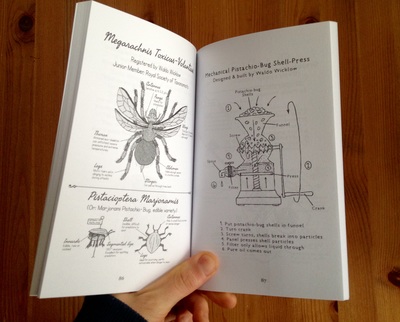
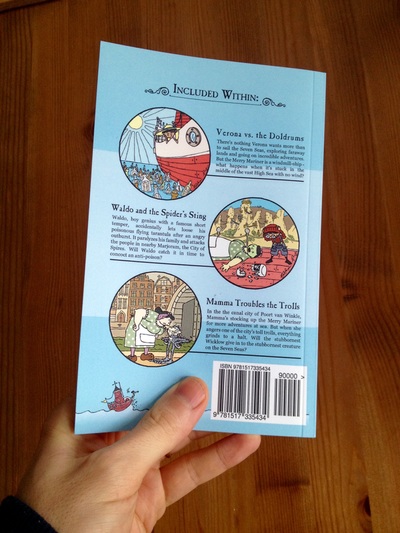

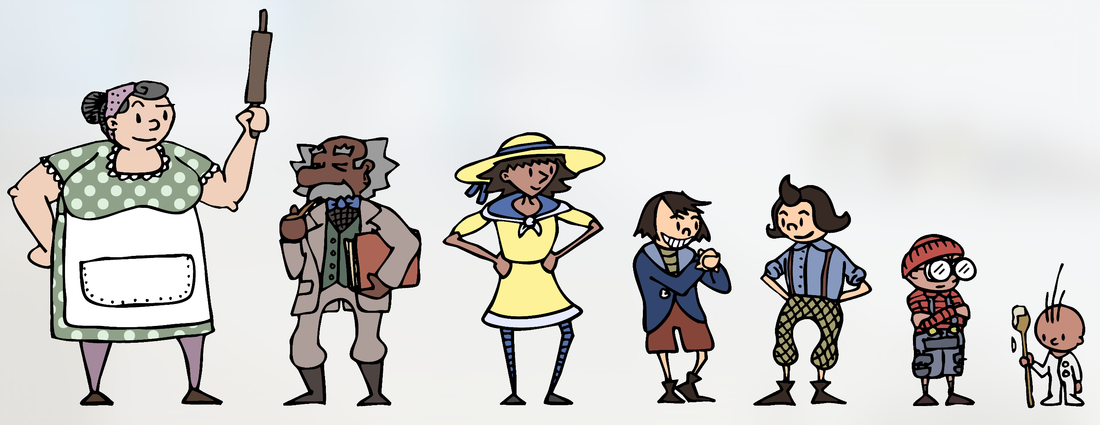
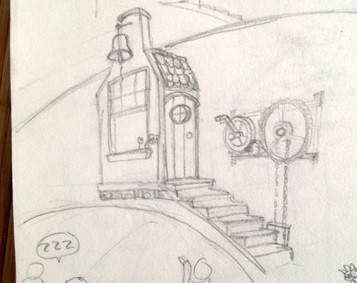

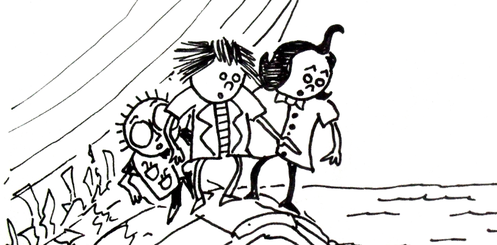
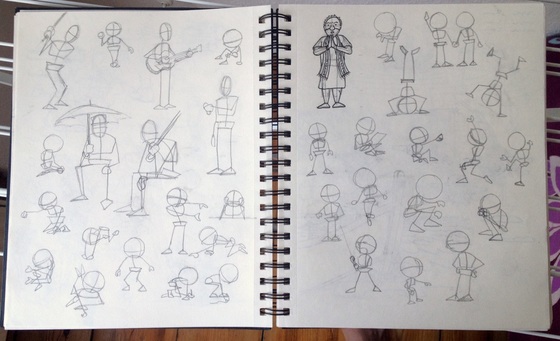
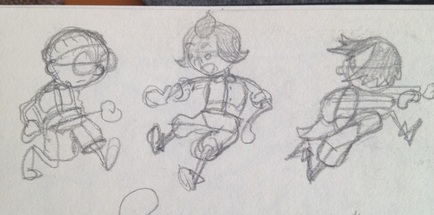
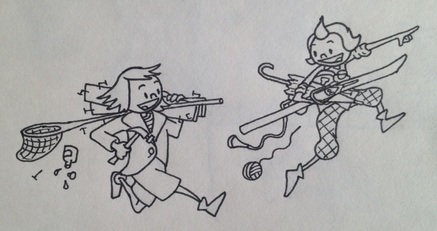
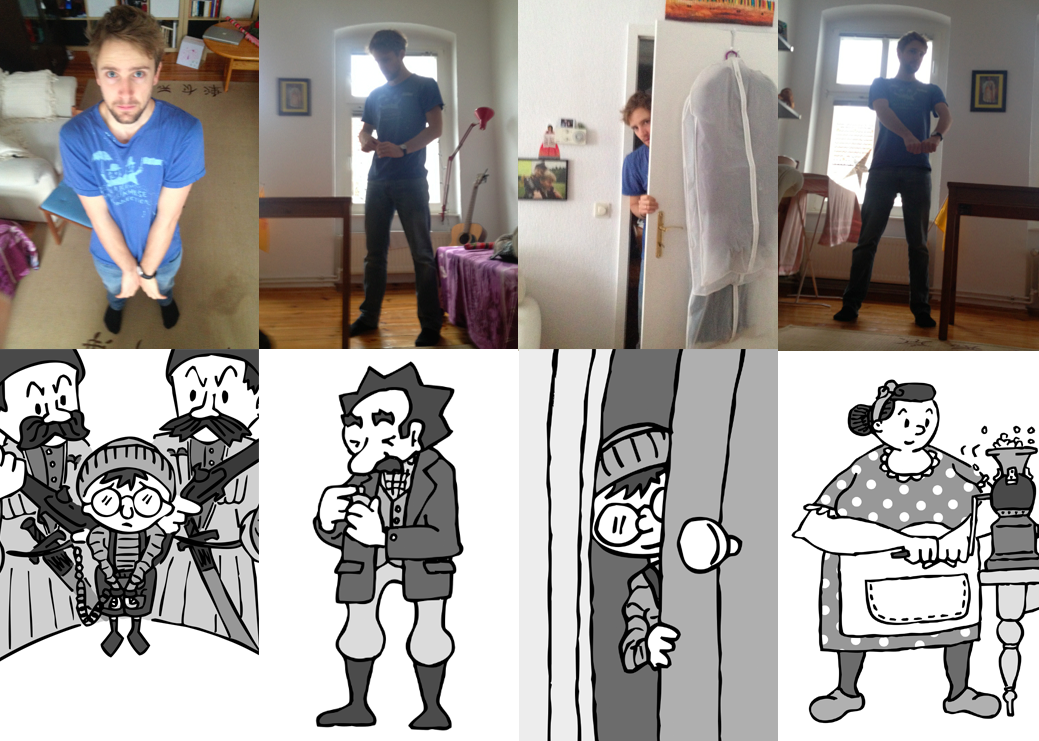
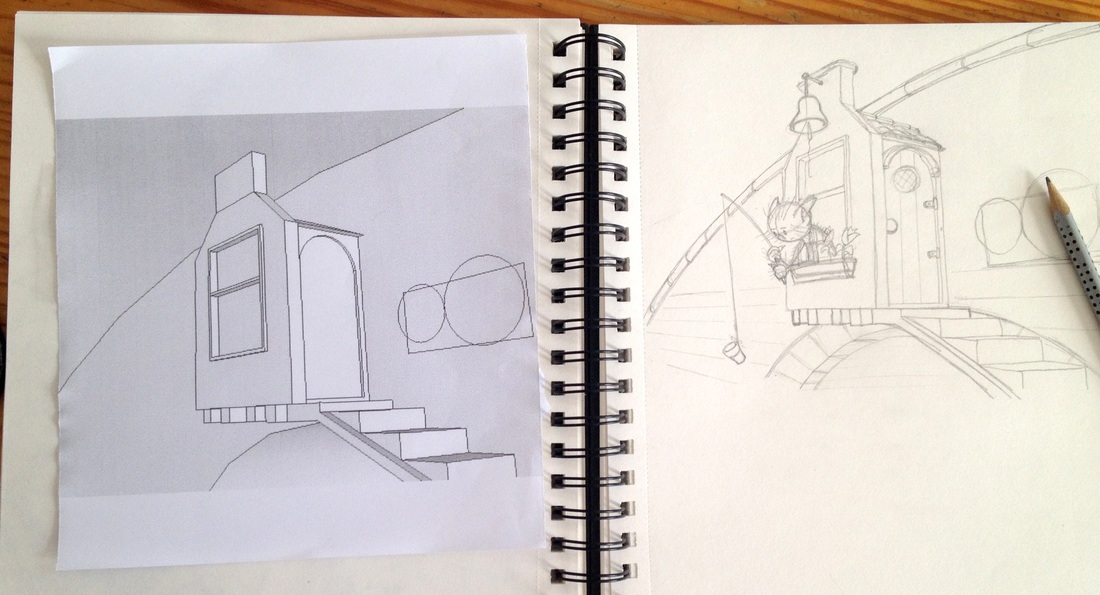
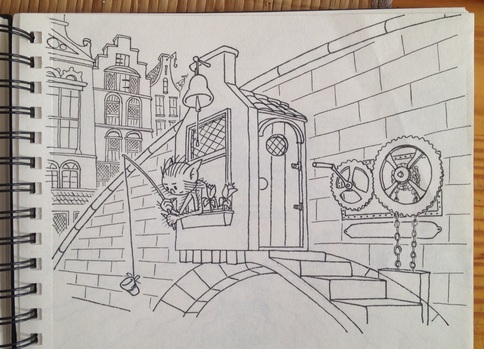
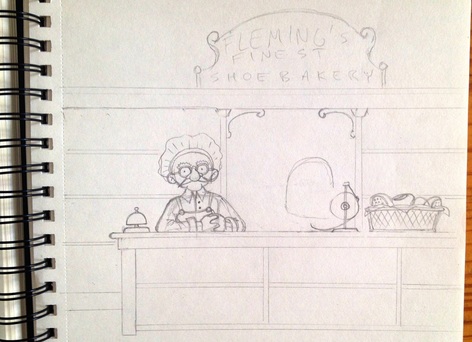
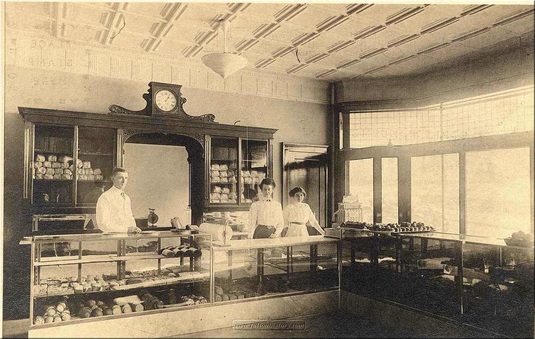
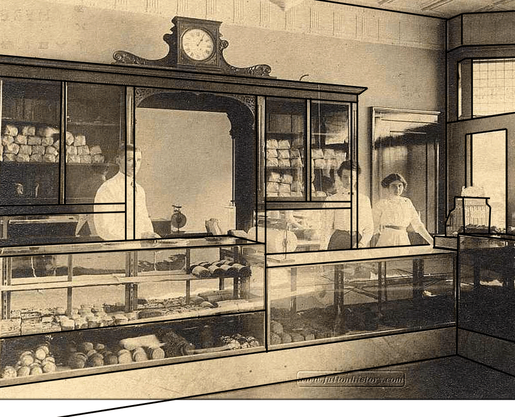



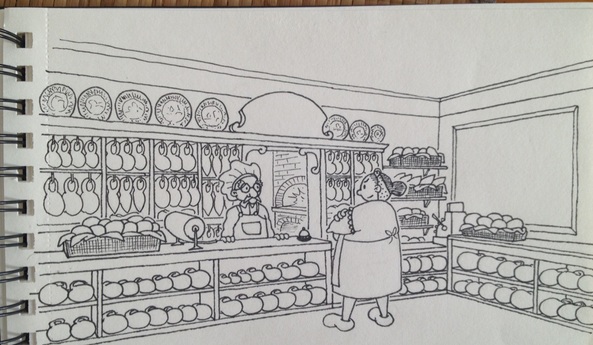

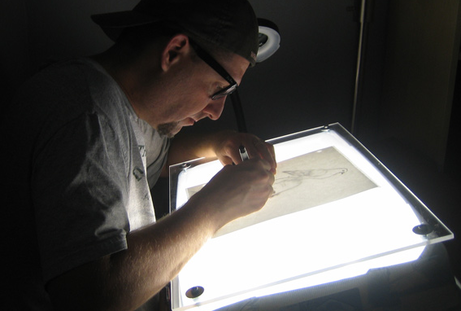
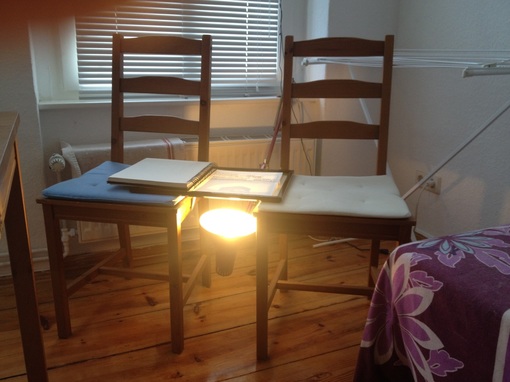
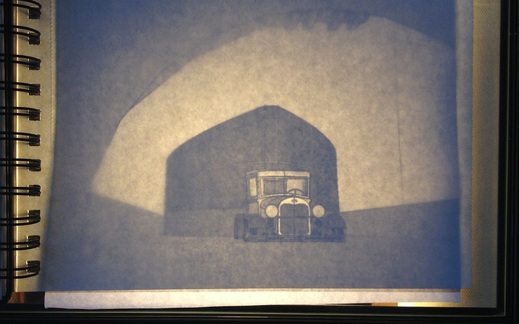
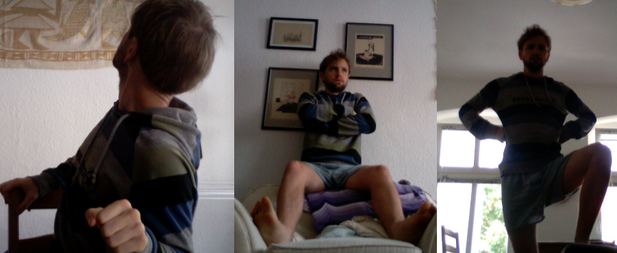
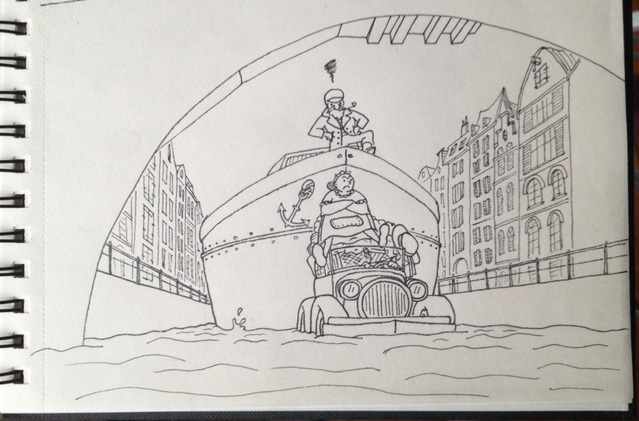
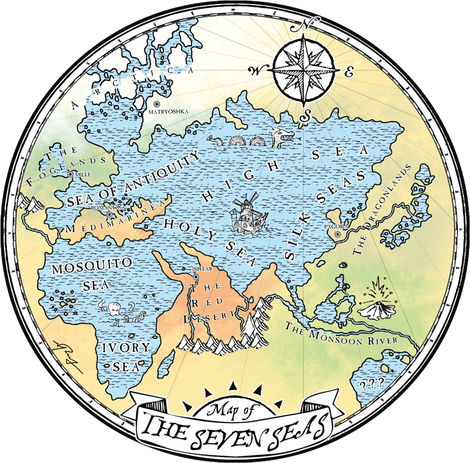
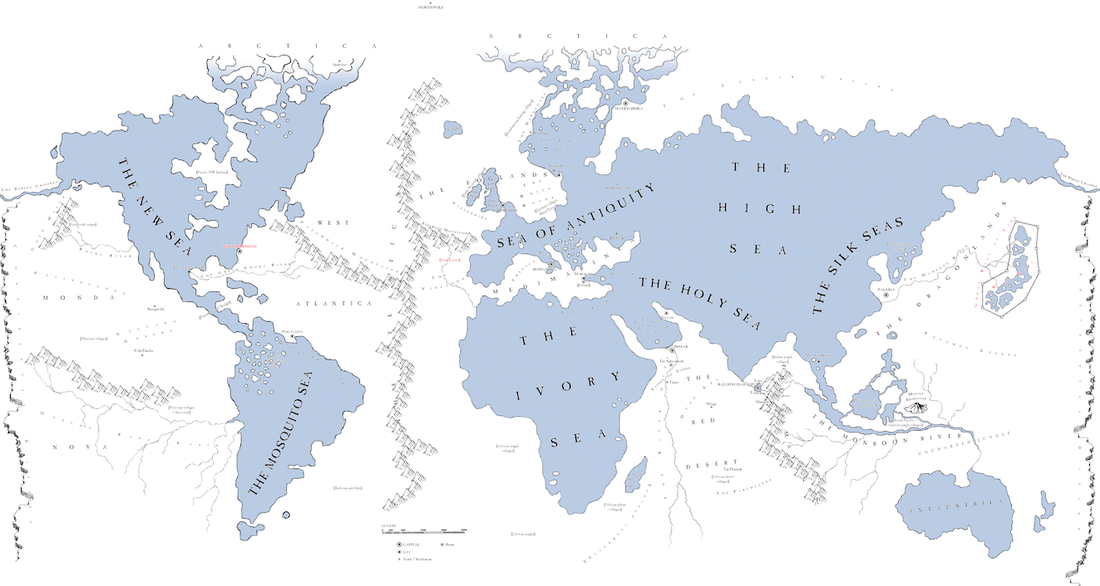
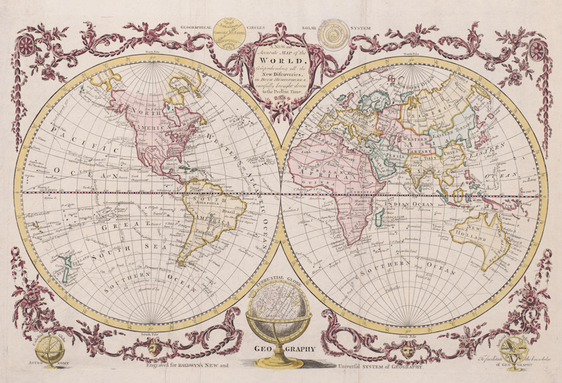
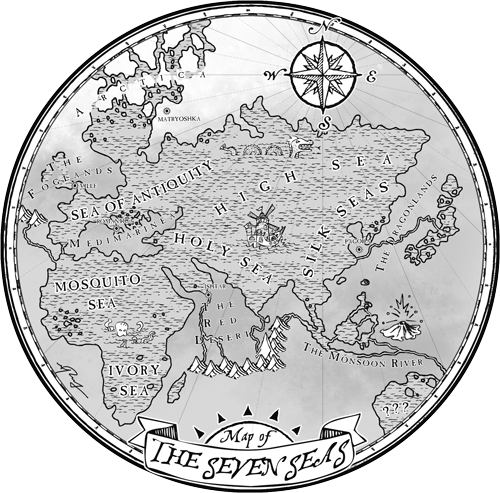
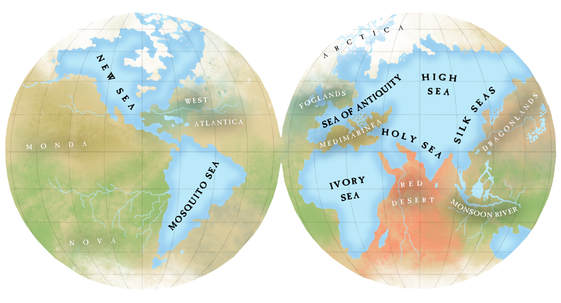
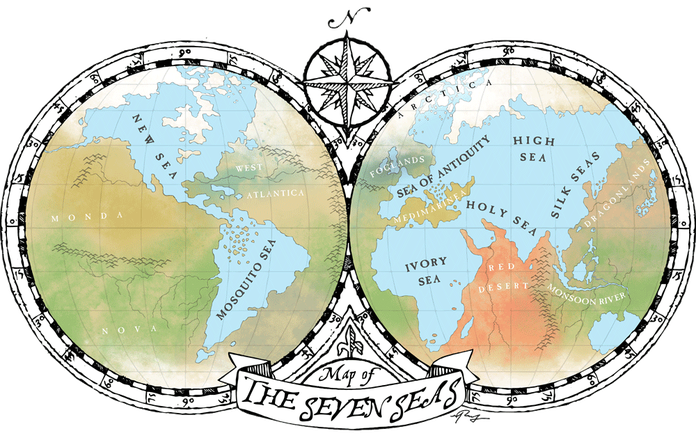
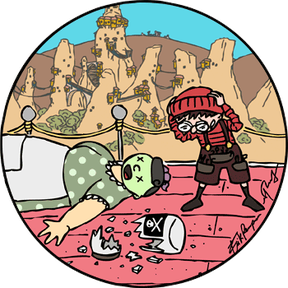
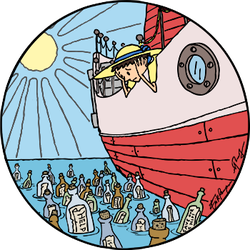

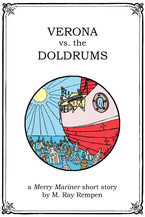
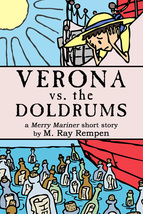

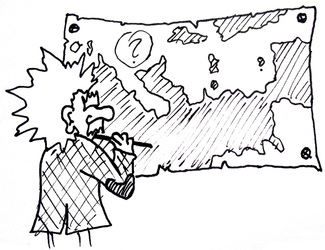

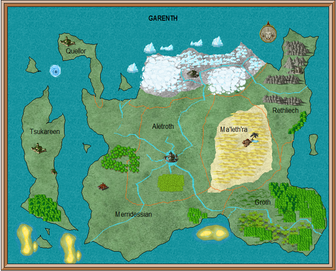
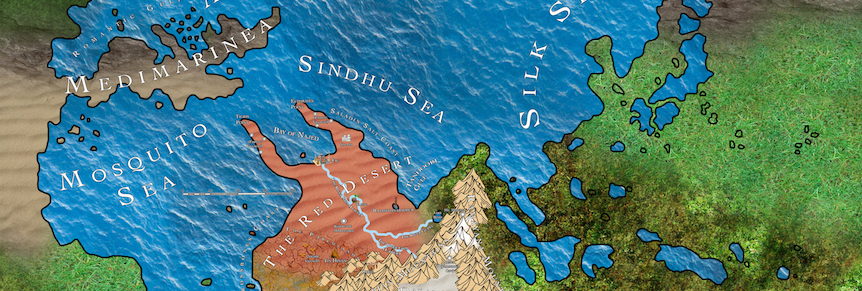
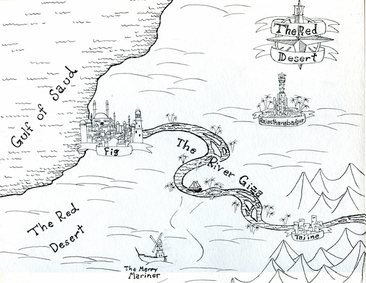
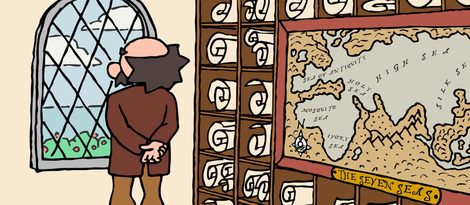
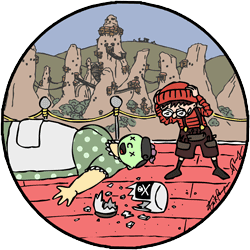
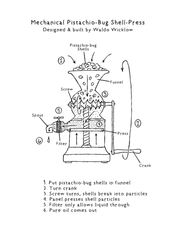
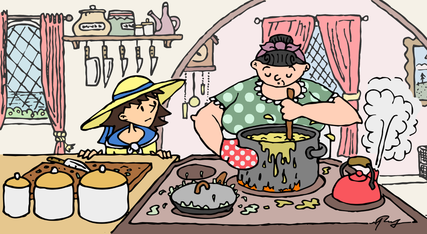
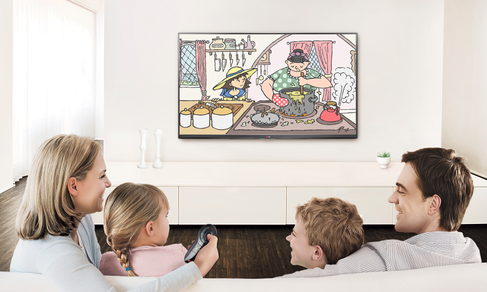
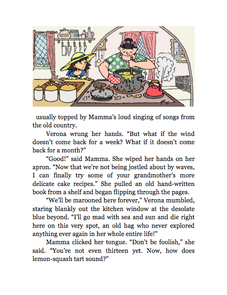
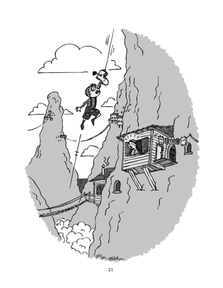
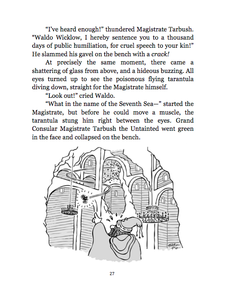
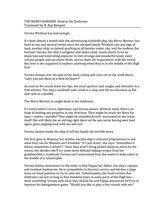
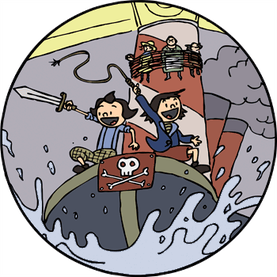
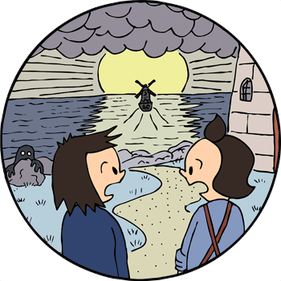

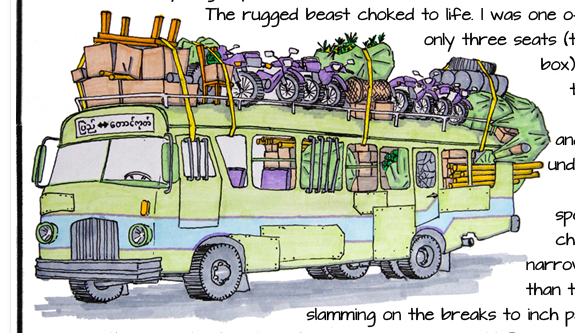
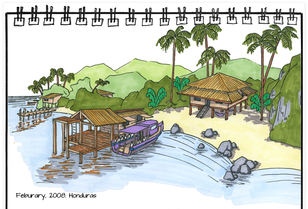
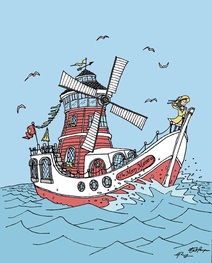
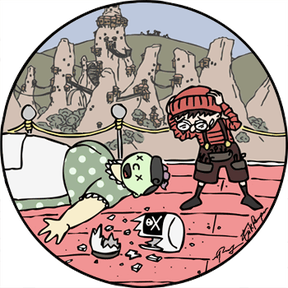
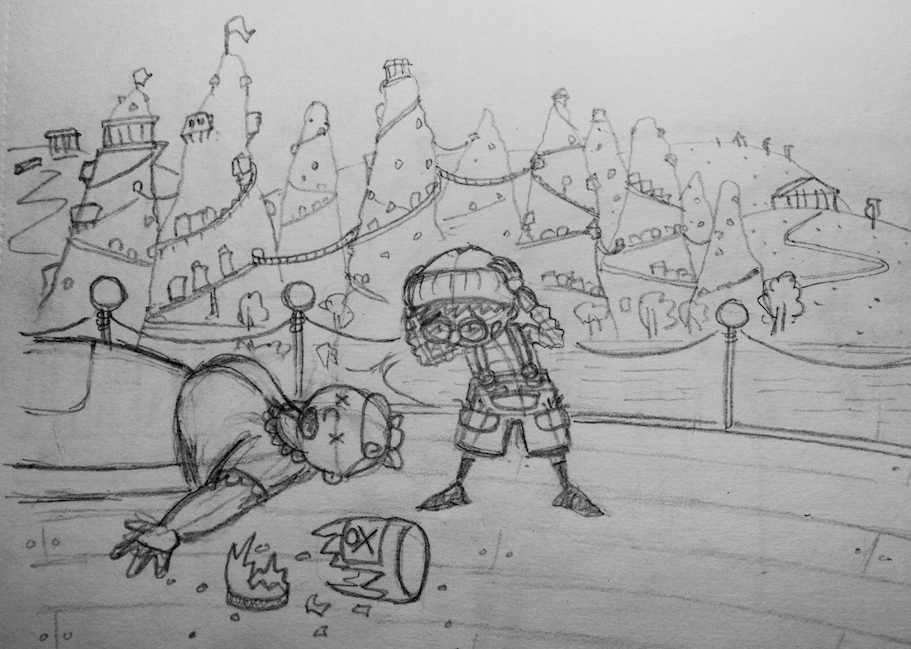
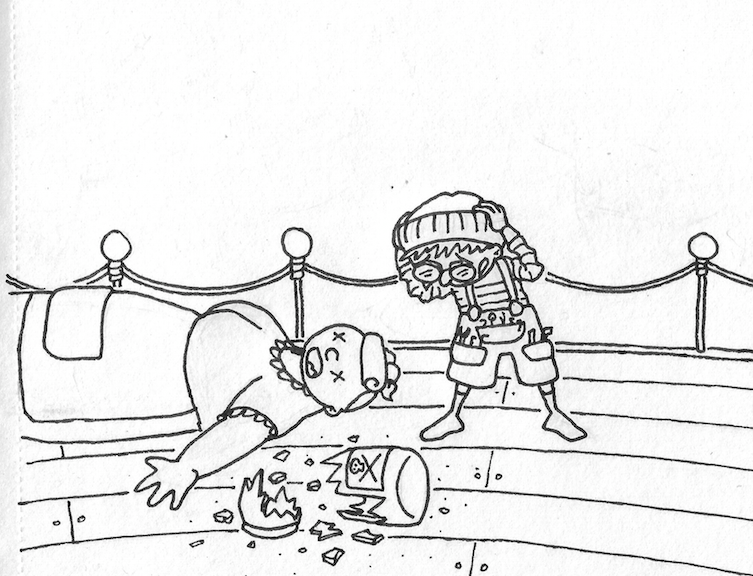
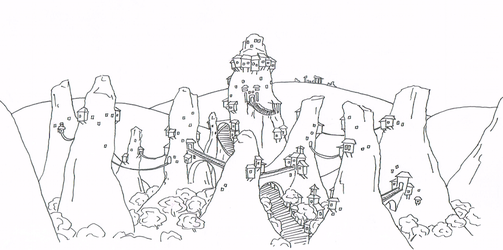
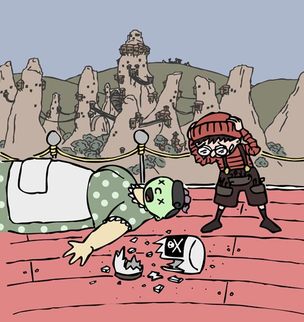
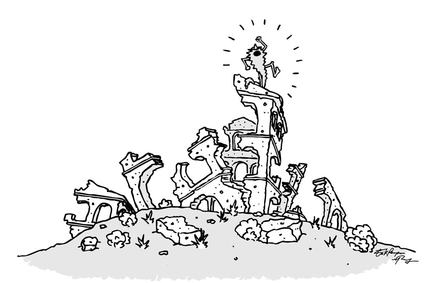
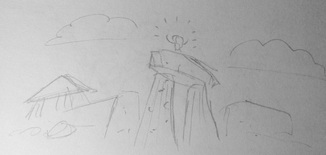
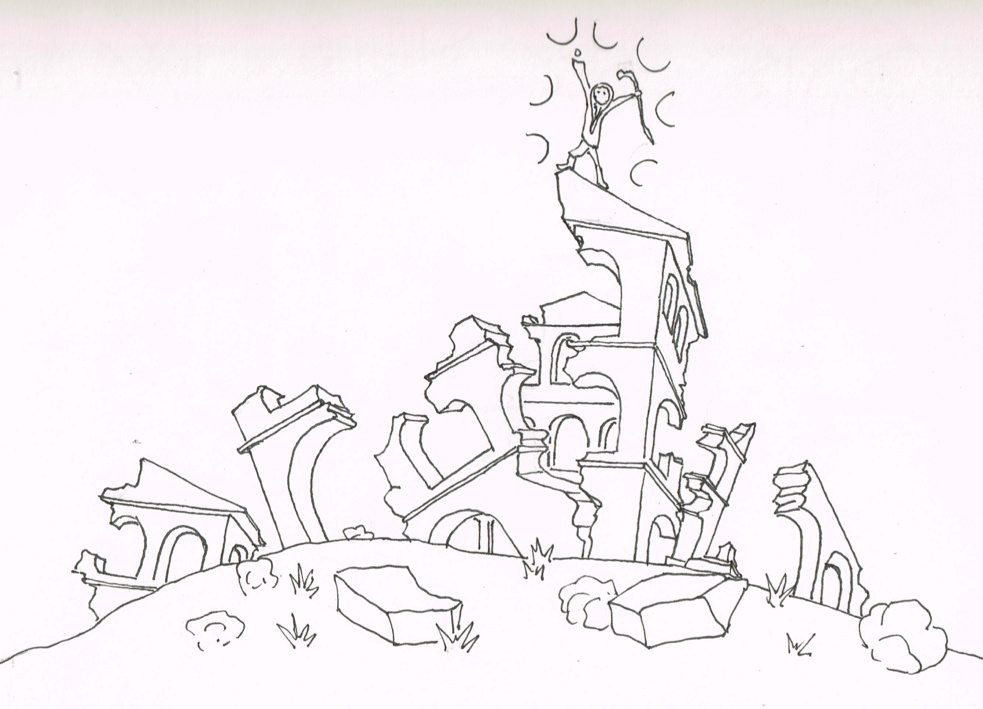
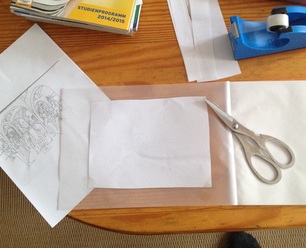
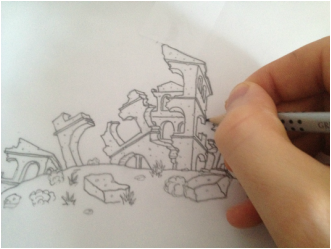
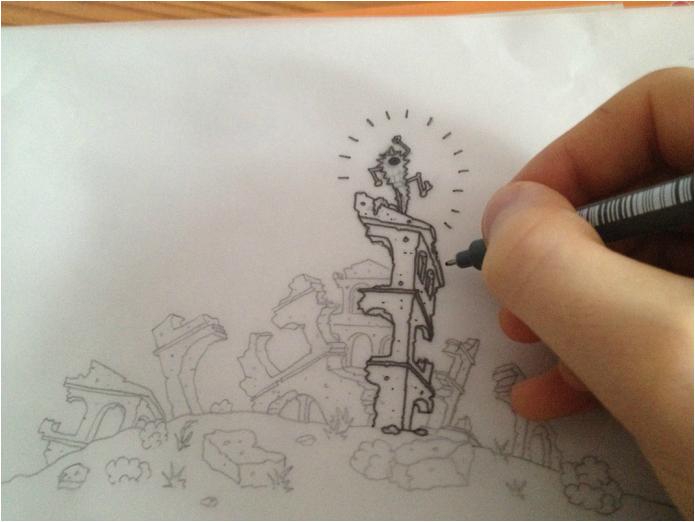
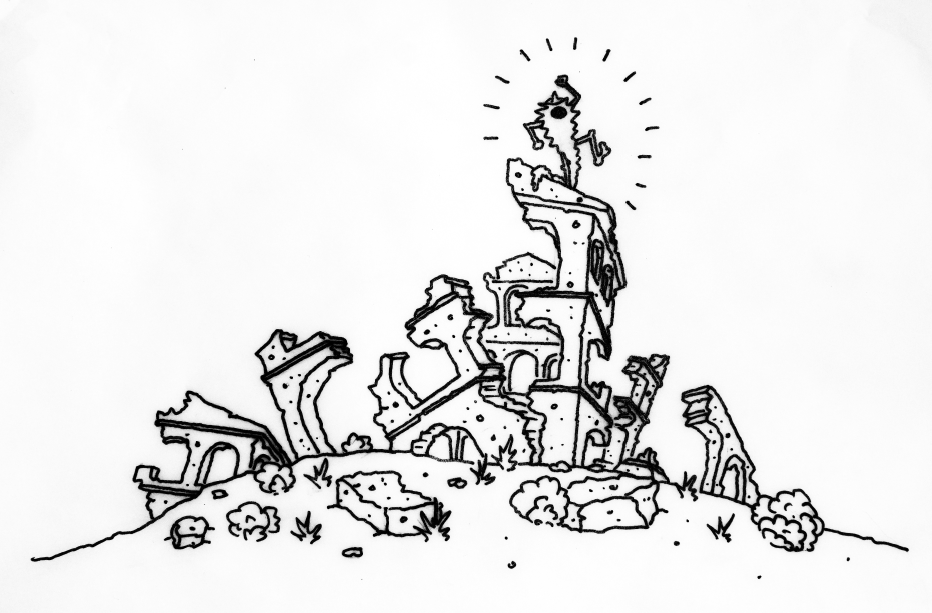
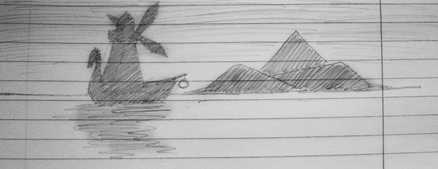
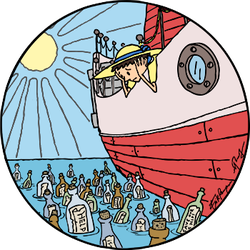

 RSS Feed
RSS Feed
